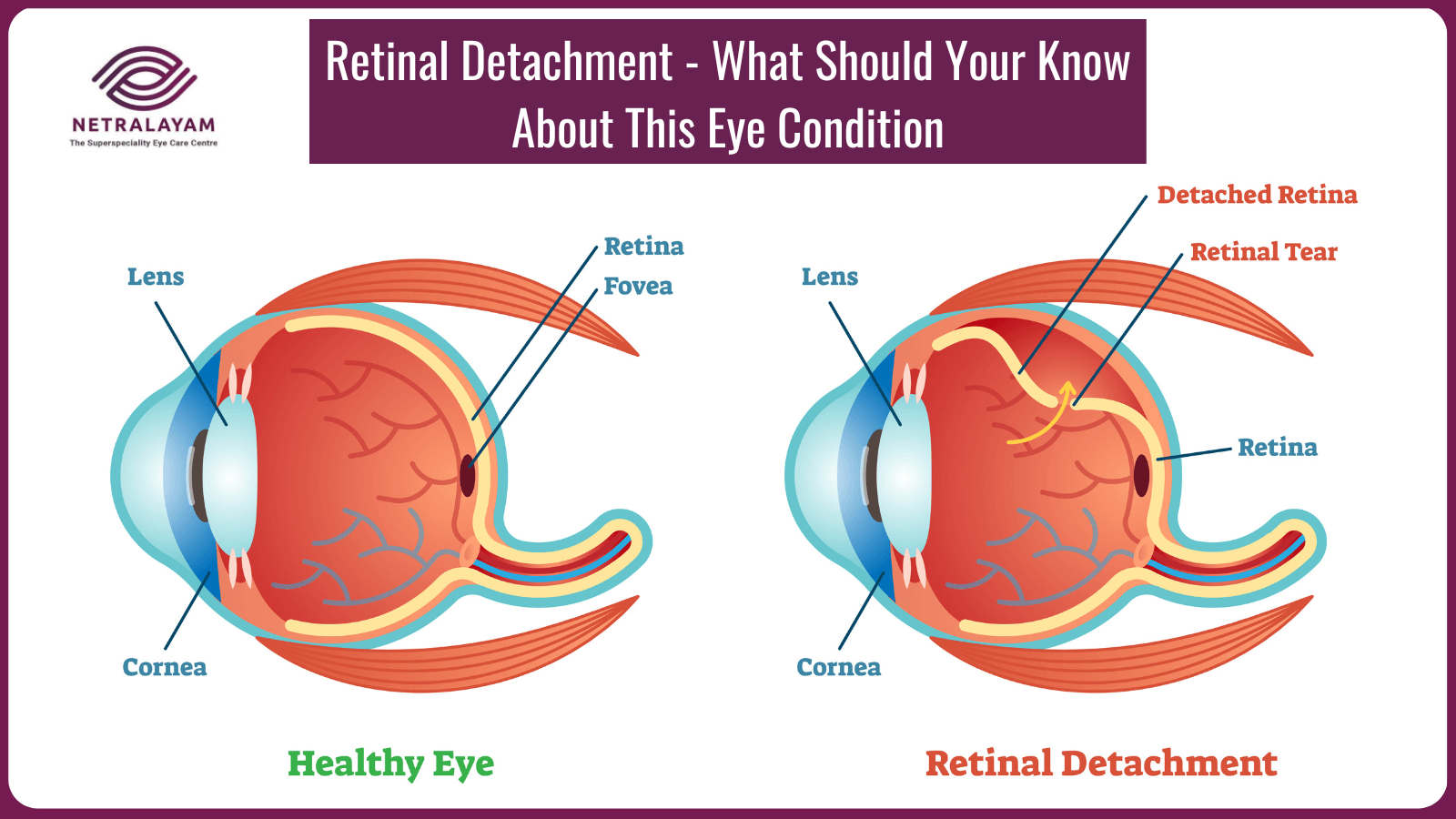Committed to Eye Care with Compassion, Technology and Competency
Committed to Eye Care with Compassion, Technology and Competency

11/9/2022
Have you ever experienced an abrupt rise in floaters in your sight, unexpected onset of neon lights or flashes, a drape or curtain occasionally darkening your vision, or sudden disappearance of eyesight? These could be signs of retinal detachment.
Before you consult your physician for retinal detachment treatment, you should learn more about retinal eye detachment.
Retinal detachment denotes an urgent condition in which the retina, a delicate tissue layer at the back of the eyeball, detaches from its normal place. Consequently, the blood vessels that nourish and oxygenate the eye are cut off from the retinal cells. This causes visionary problems. Your chance of losing your vision increases if retinal detachment treatment is delayed.
Before the ailment strikes and progress, here are some warning indicators to go for an immediate retinal detachment treatment:
If you diagnose any of the above warning signs, embark on retinal detachment treatment at the best eye hospital near you.
The common causes of retinal detachments are—
Rhegmatogenous: A slight tear in your retina is the most frequent reason for retinal detachment. The vitreous, an eye liquid, can pass from this tear, gather behind the retina, and cause detachment.
Tractional: It originates when scar tissues on the retina tighten and drift the retina away. This separation is more common in diabetic patients.
Exudative: Fluid automatically accumulates behind the retina without any tear in the retina. This pushes the retina away, causing retinal detachment.
Ophthalmologists give choices for retinal detachment treatment. You require a mix of retinal detachment surgery and drugs for the best. This includes–
Laser Therapy or Cryopexy: Your doctor may employ a surgical laser or a freezing device to repair the tear. The scar left behind by these implants keeps the retina in position.
Scleral Buckle: The surgeon employs a silicone band to encircle the eyeball to push the retina and the eye membrane together.
Pneumatic Retinopexy: This retinal detachment surgery is preferred for minor detachments to prevent the retina from separating further.
Although retinal detachment cannot be prevented, there are things you can take to reduce your risk:
At Netralayam, we provide end-to-end eye care treatments with a team of competent professionals. From cataracts, paediatric ophthalmology and squint treatment, and cornea surgery to vitreoretinal services and others, we endeavour to offer the finest quality eye care services possible!
Want a timely retinal detachment treatment? Contact the ophthalmologists at one of the best eye hospitals in Kolkata - Netralayam, and light up your vision! Book your appointment today.
Comments are closed
